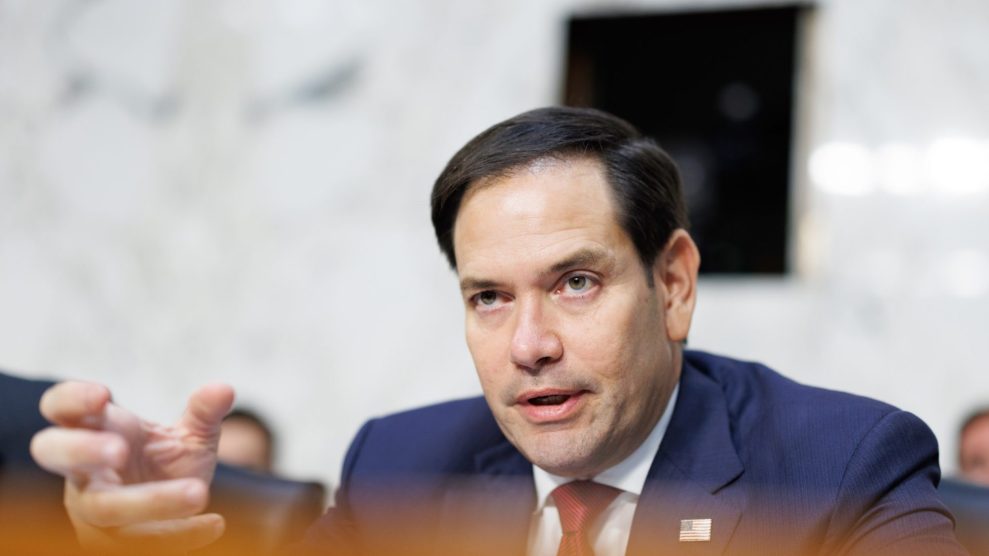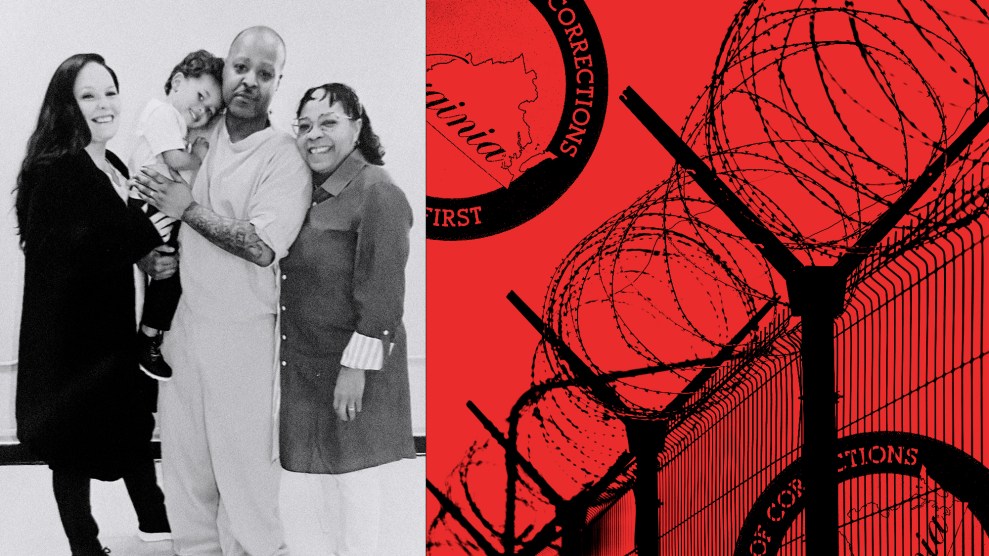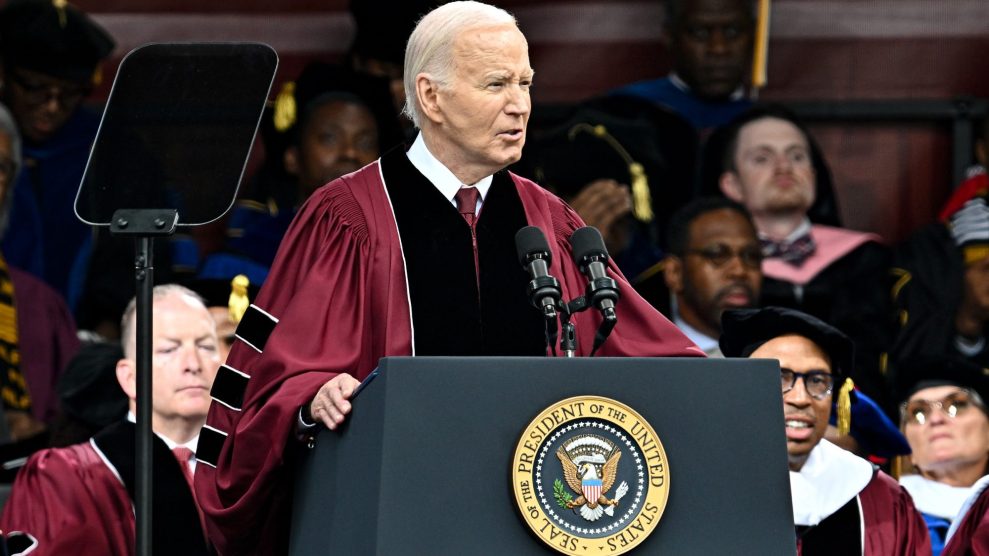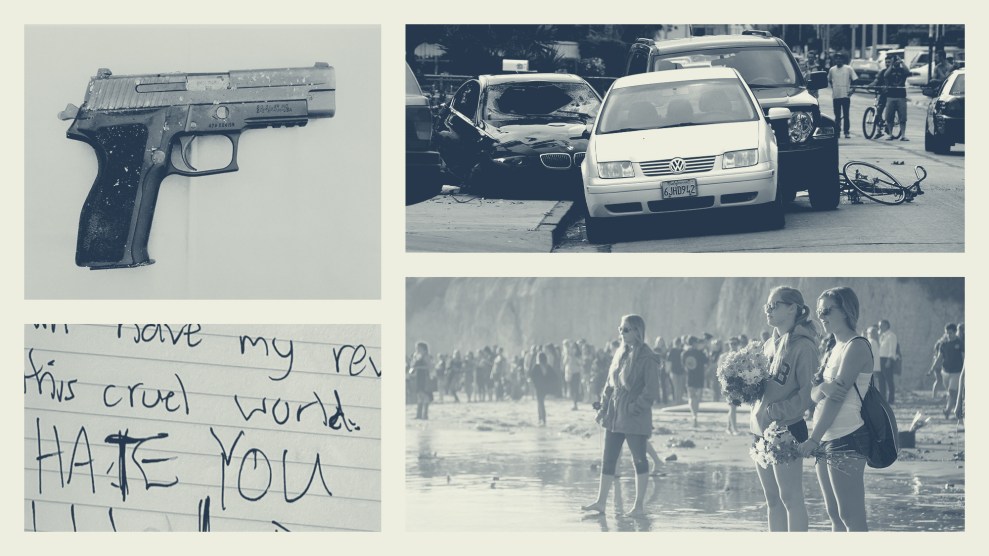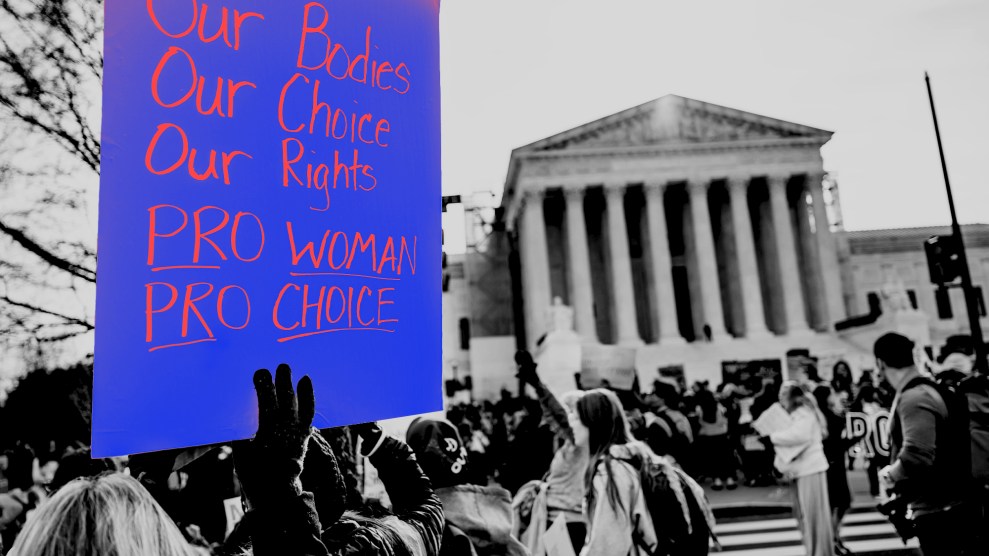Near the end of Michael Moore’s powerful Fahrenheit 9/11, the camera focuses on the faces of young U.S. servicemen and women, and Moore asks, “Will they ever trust us again?” He is referring, of course, to the false reasons that President Bush gave for sending them off to fight in Iraq. Moore’s film has become a surprise hit in Army and Marine camps in Iraq, where, one Marine corporal told the Christian Science Monitor, “Everyone’s watching it. It’s shaping a lot of people’s image of Bush.” That may be just one small indication of the growing discontent within the military over the administration’s disastrous policies in Iraq—policies that, as of this writing, have led to the deaths of 1,030 U.S. military personnel and thousands of Iraqi civilians (estimates range from 11,800 to more than 30,000).
For his story in this issue (“Breaking Ranks,” page 48), writer David Goodman uncovered a phenomenon that has received scant attention in the press—U.S. soldiers and their families are becoming increasingly vocal about their opposition to this war and are beginning to organize against it. Iraq Veterans Against the War was formed in July, and its members helped lead the protest march at the Republican convention in New York; another antiwar group, Military Families Speak Out, now includes more than 1,700 families. The GI Rights Hotline, a counseling service, is receiving more than 3,000 calls a month from servicemen and women looking for a way out of the military, and some of the callers are soldiers who have served in Iraq and, because of what they experienced and saw there, are determined not to go back. One Iraq veteran now speaking out is Marine Staff Sergeant Jimmy Massey. His unit manned roadblocks, where the soldiers would raise their hands to stop vehicles, and their orders were to shoot anyone who failed to halt. Massey estimates his unit killed 30 civilians during one two-day period. Only later did he learn that to an Iraqi, a raised hand is a sign of hello.
There has been no recent poll of military opinion about the war. But a Gallup Poll in 2003 found that 64 percent of the soldiers surveyed believed the situation in Iraq was not worth going to war over. That was only nine months after the U.S. invasion; clearly soldiers’ doubts about the war have increased dramatically since then. A poll of military families taken in Pennsylvania in August showed that 54 percent believed the war was the “wrong thing to do”—a higher percentage than in the overall population. Surely, this is the first war in my lifetime where antiwar sentiment is stronger in military families than in the public at large.
“This is a new generation,” Army Sergeant John Bruhns told Goodman, explaining criticism of the war within the military. “We have the Internet, discussion forums, cable news. Soldiers don’t just march into battle blindly anymore. They have a lot more information.” And that may be the only shred of good news to come out of the Iraq fiasco.



